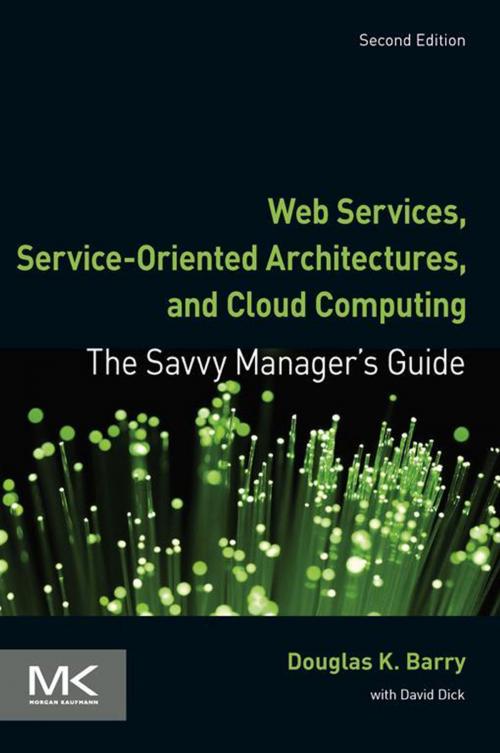Web Services, Service-Oriented Architectures, and Cloud Computing
The Savvy Manager's Guide
Nonfiction, Computers, Advanced Computing, Parallel Processing, Internet, Business & Finance| Author: | Douglas K. Barry, David Dick | ISBN: | 9780124072008 |
| Publisher: | Elsevier Science | Publication: | December 31, 2012 |
| Imprint: | Morgan Kaufmann | Language: | English |
| Author: | Douglas K. Barry, David Dick |
| ISBN: | 9780124072008 |
| Publisher: | Elsevier Science |
| Publication: | December 31, 2012 |
| Imprint: | Morgan Kaufmann |
| Language: | English |
Web Services, Service-Oriented Architectures, and Cloud Computing is a jargon-free, highly illustrated explanation of how to leverage the rapidly multiplying services available on the Internet. The future of business will depend on software agents, mobile devices, public and private clouds, big data, and other highly connected technology. IT professionals will need to evaluate and combine online services into service-oriented architectures (SOA), often depending on Web services and cloud computing. This can mean a fundamental shift away from custom software and towards a more nimble use of semantic vocabularies, middle-tier systems, adapters and other standardizing aspects.
This book is a guide for the savvy manager who wants to capitalize on this technological revolution. It begins with a high-level example of how an average person might interact with a service-oriented architecture, and progresses to more detail, discussing technical forces driving adoption and how to manage technology, culture and personnel issues that can arise during adoption. An extensive reference section provides quick access to commonly used terms and concepts.
- Broad, non-technical explanation of a technical topic for managers at all levels
- Only web services book to cover data management and software engineering perspectives; excellent resource for all members of IT teams
- Provides a set of leadership principles and suggested applications for using this technology
Web Services, Service-Oriented Architectures, and Cloud Computing is a jargon-free, highly illustrated explanation of how to leverage the rapidly multiplying services available on the Internet. The future of business will depend on software agents, mobile devices, public and private clouds, big data, and other highly connected technology. IT professionals will need to evaluate and combine online services into service-oriented architectures (SOA), often depending on Web services and cloud computing. This can mean a fundamental shift away from custom software and towards a more nimble use of semantic vocabularies, middle-tier systems, adapters and other standardizing aspects.
This book is a guide for the savvy manager who wants to capitalize on this technological revolution. It begins with a high-level example of how an average person might interact with a service-oriented architecture, and progresses to more detail, discussing technical forces driving adoption and how to manage technology, culture and personnel issues that can arise during adoption. An extensive reference section provides quick access to commonly used terms and concepts.
- Broad, non-technical explanation of a technical topic for managers at all levels
- Only web services book to cover data management and software engineering perspectives; excellent resource for all members of IT teams
- Provides a set of leadership principles and suggested applications for using this technology















